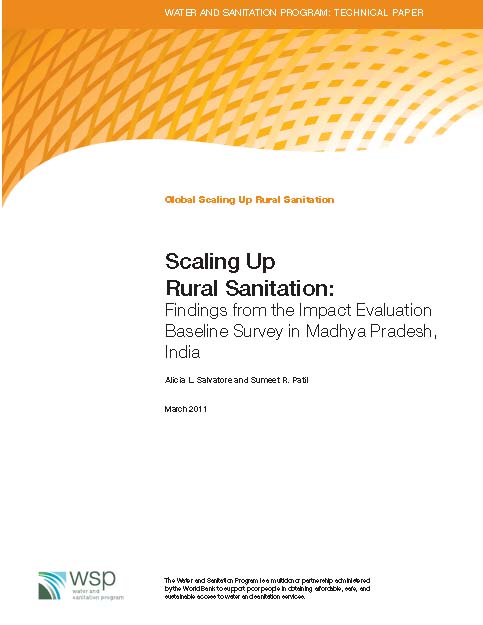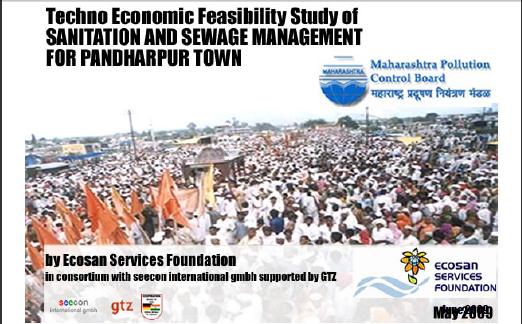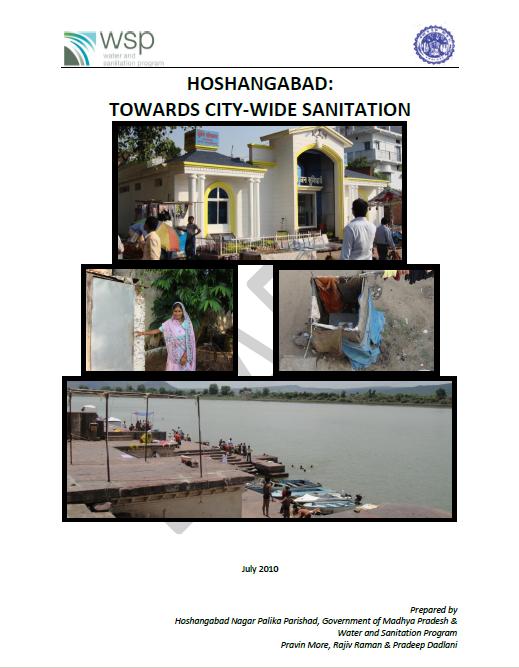Sanitation and Hygiene
Application of Composite Correction Program for improvement in efficiency of water treatment plants - A WHO paper
Posted on 20 Apr, 2011 12:41 AMThe goal of safe and affordable drinking water and sanitation has not yet been achieved. The current practices of water purification are inadequate to produce secured water supply. Maintaining health protection at water supply systems has become more challenging with resistance of some pathogens to disinfection using chlorination and an increase in the immuno-compromised population (e.g., people with HIV, organ transplant patients, the elderly).
In this context, it has become essential to develop various tools such as Composite Correction Programme (CCP) and Water Safety Plans (WSP) to improve water purification and distribution systems, to achieve the goal of providing safe drinking water.
Assessing acute Gastroenteritis risks associated with water quality and sanitation in Hyderabad city - A paper by the Institute of Health Systems (IHS)
Posted on 19 Apr, 2011 11:35 PMThe quality of drinking water is a vital element of public health and well-being. The most effective means of consistently ensuring the safety of a drinking-water supply is through the use of a comprehensive risk assessment and risk management approach that encompasses all steps in water supply from catchment to consumer.
WHO guidelines on water quality term these approaches as water safety plans (WSPs), developed to organize, systematize and apply management practices in drinking-water quality.
Scaling up rural sanitation: Findings from the impact evaluation baseline survey in Madhya Pradesh – A report by the Water and Sanitation Program of the World Bank
Posted on 18 Apr, 2011 08:20 AM This report by the Water and Sanitation Program (WSP) of the World Bank presents the findings of the baseline and community survey conducted in two districts of Madhya Pradesh (MP) - Dhar and Khargone. The goal of the program is to reduce the risk of diarrhea and therefore increase household productivity by stimulating demand for sanitation in the lives of people. The program also seeks to stimulate the supply of appropriate sanitation program and services by conducting market research and training local artisans to build the relevant facilities.
This report by the Water and Sanitation Program (WSP) of the World Bank presents the findings of the baseline and community survey conducted in two districts of Madhya Pradesh (MP) - Dhar and Khargone. The goal of the program is to reduce the risk of diarrhea and therefore increase household productivity by stimulating demand for sanitation in the lives of people. The program also seeks to stimulate the supply of appropriate sanitation program and services by conducting market research and training local artisans to build the relevant facilities.
In India, the program is supporting the Government of India’s (GoI) Total Sanitation Campaign (TSC) in two States: Himachal Pradesh and Madhya Pradesh. The main components of the intervention include: Community-Led Total Sanitation (CLTS), Social Marketing of Sanitation, Strengthening the Enabling Environment and Nirmal Gram Puraskar (NGP) Awards.
Role of civil society in sanitation improvement - A case-study from the work of Parivartan in Uttar Pradesh (2010)
Posted on 11 Apr, 2011 12:33 AMThis presentation prepared by the founders of Parivartan, a Kanpur based NGO, deals with the organisation's efforts to improve the sanitation system of the town by involving local citizenry.
Captain SC Tripathi, the founder of Parivartan explains that his organisation is based on a 'collective' model where in all aspects from ideation to implementation is a collective effort. This model seemed appropriate considering the different problems that Kanpur was facing ranging from sanitation issues to drainage, power outages etc. Added to this was political and official apathy, indifference and cynicism of citizenry.
Techno-economic feasibility study of sanitation and sewage management for Pandharpur town, Maharashtra - Ecosan Services Foundation (2009)
Posted on 10 Apr, 2011 02:15 AM This study provides interventions to solving the sanitation crisis in the holy town of Pandharpur, situated on the banks of the Chandrabagha/Bhima river, in the state of Maharashtra, which receives more than 1.5 crore devotees annually. On any given day there are approximately 20,000 pilgrims in this Class B town. This vast floating population creates massive sanitation problems leading to environmental and hygiene issues. The study forms part of the Maharashtra State Pollution Control Board's 'Environmental Improvement Programme at Religious Places in Maharashtra' project.
This study provides interventions to solving the sanitation crisis in the holy town of Pandharpur, situated on the banks of the Chandrabagha/Bhima river, in the state of Maharashtra, which receives more than 1.5 crore devotees annually. On any given day there are approximately 20,000 pilgrims in this Class B town. This vast floating population creates massive sanitation problems leading to environmental and hygiene issues. The study forms part of the Maharashtra State Pollution Control Board's 'Environmental Improvement Programme at Religious Places in Maharashtra' project.
Hoshangabad - Towards city wide sanitation - A draft report by Hoshangabad Nagar Palika Parishad and WSP
Posted on 10 Apr, 2011 01:57 AM  This proposal prepared by Hoshangabad Nagar Palika Parishad, Government of Madhya Pradesh and Water and Sanitation Programme South Asia, is meant to ensure that every household in this town adopts safe sanitation practices and is to help enable the urban local body, implement a city wide sanitation programme that finally ensures collection and treatment of waste.
This proposal prepared by Hoshangabad Nagar Palika Parishad, Government of Madhya Pradesh and Water and Sanitation Programme South Asia, is meant to ensure that every household in this town adopts safe sanitation practices and is to help enable the urban local body, implement a city wide sanitation programme that finally ensures collection and treatment of waste.
This document is the tenth mile stone in the process of achieving the goal of city-wide sanitation for Hoshangabad.
CMS is looking for Senior Research Associate (Water and Sanitation) at New Delhi – Apply by 15th April, 2011
Posted on 08 Apr, 2011 06:31 PMContent courtesy: DevNetJobsIndia
 CMS is a not for profit multi- disciplinary, development research and facilitative think-tank. We endeavor to work towards equity, social development and transparency in governance through research, advocacy and capacity building.
CMS is a not for profit multi- disciplinary, development research and facilitative think-tank. We endeavor to work towards equity, social development and transparency in governance through research, advocacy and capacity building.
WaterAid India is looking for Executive Assistant at New Delhi - Apply by 14th April, 2011
Posted on 08 Apr, 2011 06:14 PMContent courtesy: DevNetJobsIndia
 WaterAid is an international non-governmental organisation focused exclusively on improving poor people’s access to safe water, improved hygiene and sanitation in developing countries. WaterAid is an equal opportunities employer.
WaterAid is an international non-governmental organisation focused exclusively on improving poor people’s access to safe water, improved hygiene and sanitation in developing countries. WaterAid is an equal opportunities employer.
United Nations Institute for Training and Research (UNITAR)’s e-learning course on “Governance in Urban Sanitation”, 25th April – 1st July 2011
Posted on 18 Mar, 2011 01:05 PM Organizer: United Nations Institute for Training and Research
Organizer: United Nations Institute for Training and Research
Topics:
- Introduction to Sanitation





